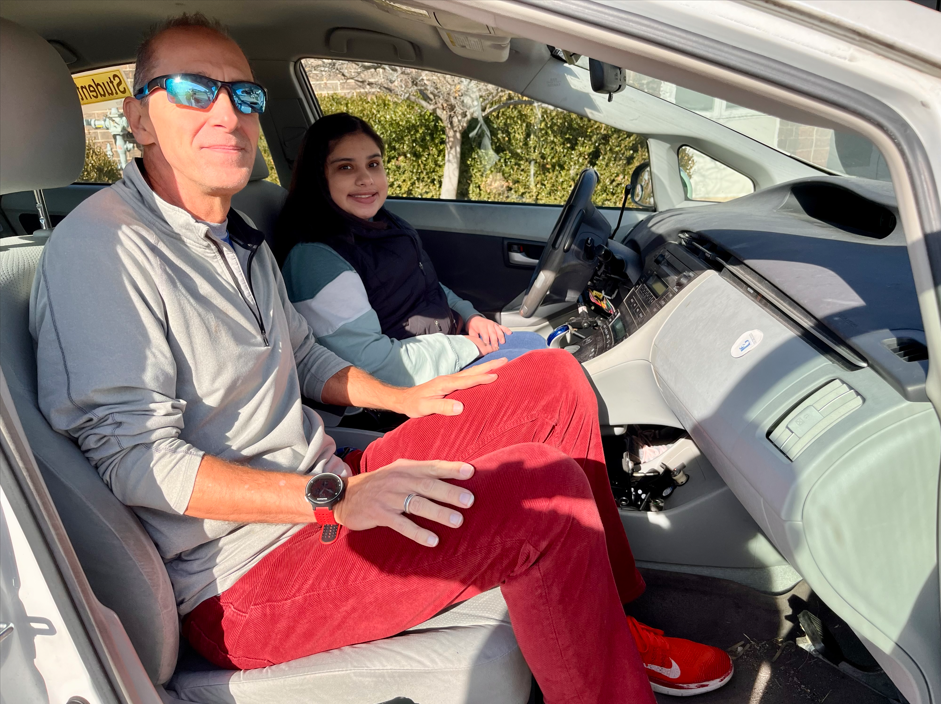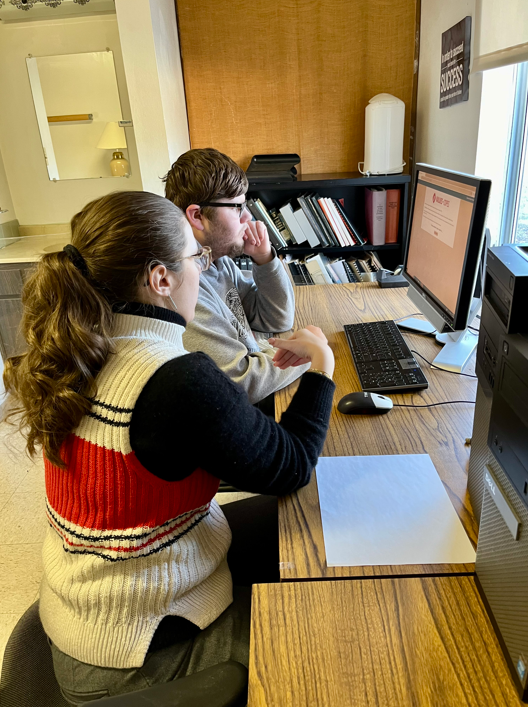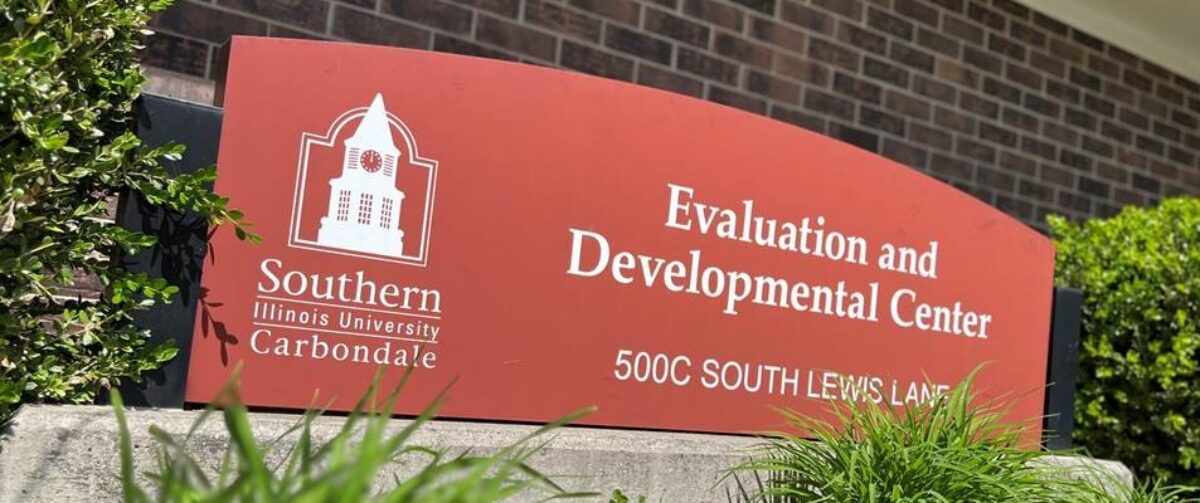The Evaluation and Developmental Center is a comprehensive rehabilitation facility with a long history of vocational, psychological, transitional, and driver education services provision. We are a direct service component of Southern Illinois University Carbondale’s School of Psychological and Behavioral Sciences. We have maintained a successful relationship with the Illinois Division of Rehabilitation Services for several decades and are jointly funded by Southern Illinois University Carbondale and the state of Illinois Department of Human Services Division of Rehabilitation Services. We also provide services that are available to the public through a fee for service arrangement and have served individuals referred through public high schools, community colleges, universities, hospitals, the Veteran’s Administration, and attorneys.
JOB SEEKING SKILLS TRAINING (JSST):
This program is a work skill training program that is designed to teach and train skills and strategies that assist and empower individuals with disabilities to overcome their barriers to employment and to be successful in competitive integrated employment. Workplace skills are often the difference in an individual being able to work competitively in the community or not being able to compete in the competitive environment. Oftentimes, individuals have not had the opportunity to learn these “soft” skills or to learn strategies that help them to ameliorate some of the barriers that are preventing them from obtaining and/or maintaining competitive integrative employment. Some of the skills taught in the program include adaptability, communication, time management, problem solving, conflict resolution, teamwork, flexibility, transportation training, self-advocacy, ethics, and emotional regulation. We also work on teaching strategies to enhance work quality, work speed, and skills such as attention to detail, concentration, initiation, and basic work skills such as attendance and punctuality. We use community-based internships and work-based learning experiences to help individuals to practice learned skills and strategies in a natural real-world workplace. We also provide career exploration assistance. Individuals also have the opportunity to explore post-secondary education possibilities at the community college or university level to explore if a career pathway is a good fit for them. We desire our customers to live richer and meaningful lives by helping them learn strategies to reduce their vocational limitation, creating opportunities and supporting them to achieve their goals by changes in thoughts, feelings, and actions. This program offers group sessions, individual case management services and follow along services. Individuals are referred for job placement after successful completion of the program.

COMMUNITY EMPLOYMENT (CE) SERVICES:
The Community Employment Services program works with and advocates for a client seeking competitive employment. The primary goal is to place clients with compatible, competitive employment. This goal is achieved by matching the vocational interests, work traits, and abilities of the client with a job in the community. Individuals in this program receive assistance with completing and submitting applications, interviewing skills, job development, contacts with potential employers, and limited job site support. Upon entering the Community Employment Program, the following services are provided:
• The client is assigned to a Community Employment case manager.
• An individualized employment plan is developed.
• Computer access and guidance is available by appointment for job search, applications, and resume development.
• Guidance is provided, emphasizing the skills needed to seek and maintain employment to include job retention skills, resume writing, job interviewing techniques, and other areas necessary for obtaining employment.
• With the client’s approval, individual advocacy with community employers is conducted to facilitate employment prospects.
• Regular meetings with the Department of Rehabilitation Services at least every eight weeks to review the current plan and revise as necessary.
• Follow-along and support services are provided for 90-days post-employment.
SUPPORTED EMPLOYMENT PROGRAM (SEP):
The Evaluation and Developmental Center’s Supported Employment Program assists individuals with most significant disabilities in obtaining and maintaining competitive, integrated community employment. “Supported Employment Services” means ongoing services needed to support and maintain an individual with the most significant disability in employment. These services are based upon the customer’s need for support.
Supported Employment services include assessment and planning. Assessment and planning includes an evaluation of the individual’s abilities and capabilities for employment; development of a plan to provide training, job development and placement services leading to employment.
Further, this program provides services for job development and placement. This includes provision of training and supports necessary to achieve employment, identification of prospective employers, and contacting businesses to arrange placement. Additionally, this program supports customers to be hired in a competitive employment position.
Job coaching is provided according to the customer’s needs and employer expectations and to assist the customers to learn specific work tasks and implement strategies to obtain successful employment. As customers become more proficient in their job responsibilities job coaching supports will fade out.
Group meetings called staffings will be held at least every 8 weeks to discuss the customers’ progress in the program. Staffing meetings will be attended by the customer, EDC staff, and the DRS counselor at a minimum. Any customer can request other supports to attend these meetings.
TRANSITIONAL INDEPENDENT LIVING CENTER PROGRAM:
The goal of the Living Center is to provide our residents with a safe, friendly and stimulating environment to live and learn skills and strategies that increase independent living and inclusion in the community and competitive integrated workplaces. The Living Center is organized to meet the resident’s vocational, physical, social, emotional and cognitive needs and abilities all while being able to form friendships, socialize and work toward personal independence. Services offered include meal preparation and planning, budgeting and spending skills, self-advocacy instruction, hygiene, laundry, home maintenance, safety and security, transportation training, timeliness, and social skills. Skills that are necessary to obtain and maintain successfully vocational relationships are also taught in this program. Residents are taught living skills that effect their ability to be successfully employed in their community. Living center staff work with residents to teach them to apply the independent living skills they learn in the program on the job as well. For example, skills necessary to maintain clean and tidy clothing/physical appearance in the workplace environment, appropriate food preparation and storage to and from the workplace for lunch, and the utilization of public transportation are integral independent living skills that are also necessary to obtain and maintain successful employment and are taught in this program. Individual goal setting, community referrals, personal case management, progress discussions and individualized support counseling are also a part of this program. Residents of the Living Center participate in community and recreational activities with a collaborative team of professionals.

DRIVER REHABILITATION:
Four components are available for individuals pursuing Driver Rehabilitation Services. They include Driver Evaluation, Driver Rehabilitation/ Training, Vehicle Adaptive Equipment Prescription and Consultation Services. Driver evaluation is a ten-step process that usually takes two-four hours, depending on the vehicle used, disability & adaptive equipment needs of the individual. This involves both clinical and behind the wheel testing. Parking lot and/or on-the-road driver assessment is provided in an adapted driver education vehicle.
Driver rehabilitation/ training consists of on-the-road components. Review sessions can prepare individuals for the driver’s permit test for those in need of this service. Driver simulation experience is also offered. Individuals observe simulation videos with teacher supervision/discussion of driving scenarios in a non-threatening environment.
Behind-the-wheel training is typically provided in one-hour increments, one to two sessions weekly. Adjustments in training times can be made to meet individual needs. The individual’s equipment needs determine which vehicle will be most appropriate. Instruction may conclude with driver’s license testing at a local driver’s license facility in EDC vehicles for individuals meeting proficiency & safety qualifications/requirements.
Vehicle adaptive equipment prescriptions are provided to individuals needing adaptive equipment. This includes vehicle selection, appropriate adaptive aids/devices & vehicle modifications.
Meetings are provided by request for topics including: Program presentations, medical/vision advice/report forms, adaptive equipment devices & vehicle selection/ modification options.

VOCATIONAL EVALUATION (CVE) SERVICES:
This program assesses work strengths, abilities, preferences, and limitations through a comprehensive evaluation process which includes a vocational interview, vocational testing, work samples, and behavioral observations. The evaluation will include an assessment of cognitive functioning, academic achievement, vocational aptitudes, interest and work values, and work personality. We also provide transferable skills analysis, accommodation and adaptive technology recommendations, insight and brief vocational counseling, and individualized career exploration.

PSYCHOLOGICAL EVALUATION SERVICES:
Psychological evaluation is available upon referral and is provided to assess an individual’s intelligence through the use of the WAIS-IV and includes diagnostic determinations of learning and other mental disorders to assist with educational and vocational planning. Diagnosis is provided in accordance with the DSM-5. Specific recommendations for accommodations as well as recommendations for any needed ancillary services are included in the psychological assessment.

